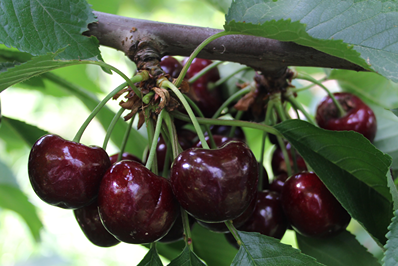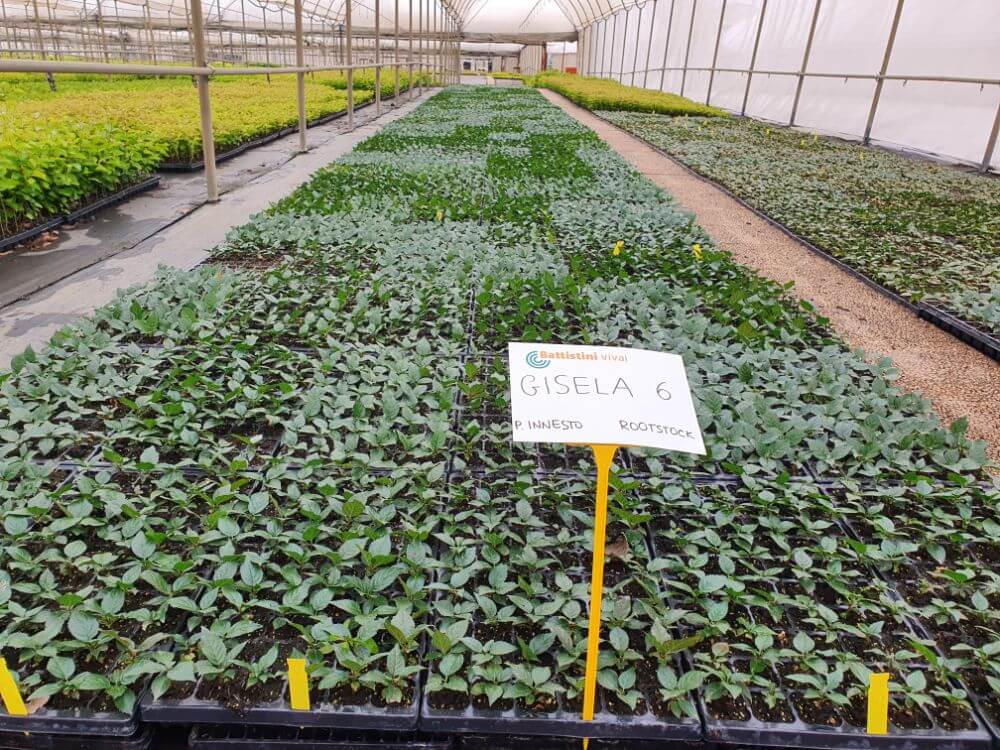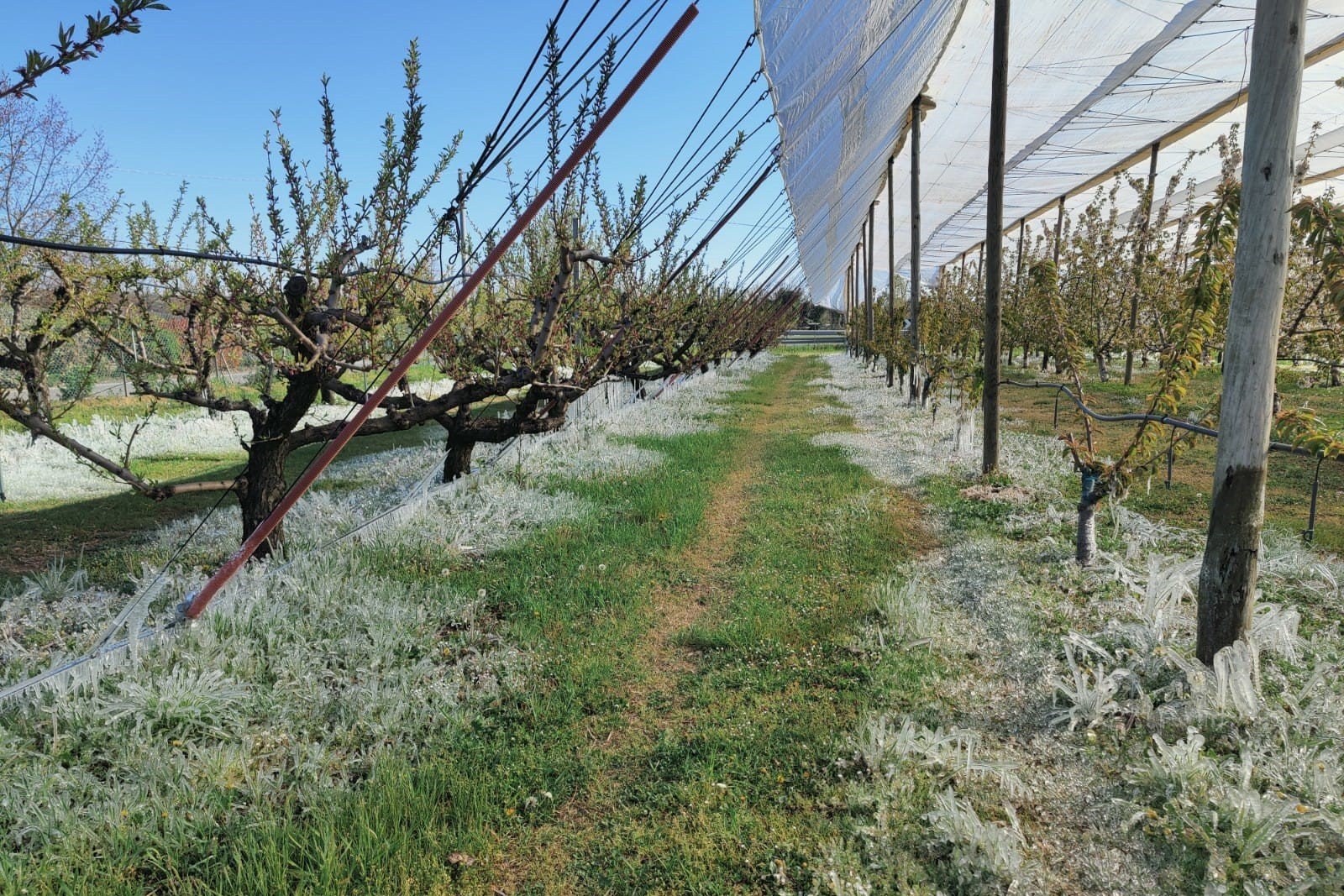The last lesson of the successful “Cherry Course: Management Strategies for Obtaining Quality Fruit” by Mundoagro Capacita, held by Christian Gallegos, a consultant specializing in blueberries and cherries, founder of Berrycherry and technical director of CropSolutions, concluded with the topic of stress reduction in cherry trees, with an average participation of 400 people. The course was sponsored by key companies in the sector such as Agrovit, Servalesa, Manvert, and Corteva Biologicals (formerly Stoller).
Gallegos commented that stress has become more evident due to various abiotic and biotic factors, such as pests and diseases. “In recent years, there has been an increase in frosts and precipitation. Therefore, we must prepare for the climatic events that will occur this spring.
Plants are currently undergoing drought, saline, and water stress, among others. Therefore, we are demanding more from our cherry trees, which, although they have significant plasticity based on different varieties and the variety-root relationship, are not being planted in the most suitable conditions for this crop,” he added.
When the crop faces these unnatural conditions, growers must manage various elements that can impact productivity potential. “Climate change has generated a high probability of significant climatic events that are triggering deficits in productive potential, as well as the introduction of biotic factors that have increased.
For example, with the greater presence of Drosophila suzukii, larvae, and nematodes in the soil. There have also been significant issues with wood fungi, which affect the productive potential in the main cherry growing areas of the country,” Gallegos explained.
According to the expert, the types of stress are divided into two: the first is abiotic, related to issues such as UV radiation, for example, where from Ovalle to Los Lagos the radiation is changing because as you move south, cloudiness increases. “In terms of temperature, we no longer have the transition from winter to spring, but we are moving from a very cold winter to a very hot summer, which was reflected in the last season.

In regions like the metropolitan area, the fifth and sixth regions, we have salinity issues that generate stress in the crop and post-harvest. We are experiencing drought stress; the arid zone is moving south in Chile, which is a concern as it could generate water stress due to water scarcity.
We are also observing atmospheric changes, related to variations in relative humidity in the environment, which, along with temperatures, can generate stress due to vapor pressure deficit.
Then, biotic stress is related, for example, to bacteria that significantly attack the cherry crop. “For example, Pseudomonas syringae causes bacterial canker, which has been managed with copper, biological controllers, and antibiotics. We have fungi like Phytophthora that attack many species.
A couple of seasons ago, viruses causing wilting and excessive plant growth were in vogue. In fact, due to a problem with China, we had to conduct analyses on viruses, which are difficult to do,” the specialist explained.
Following these types of stress, plants generate responses, such as defense compounds: polyphenols, alkaloids, terpenes, phytoalexins, and plant hormones. “In terms of strategy for managing wood bacteria and fungi, it is essential to strengthen the plant's immune system and use elicitors,” Gallegos said.
The Sponsors
The course featured presentations from the course's sponsors. One of these was Corteva Biologicals (formerly Stoller). Paula Vargas, Commercial Excellence of the company, talked about BioForge, an antioxidant that lowers the plant's stress levels.
“On social media, we spread the Botiquín campaign, which includes various products that we use to solve or help resolve different issues in orchards, and BioForge is part of this first aid kit, which also includes products like ReZist, Algrow, Trichosym Bio, and AguaRet.”
According to Vargas, it is difficult to reach the maximum productive potential of a species because the reality is that orchards are exposed to environmental conditions that, while helping us in the phenological stages, simultaneously damage productive potential.
“When high temperatures impact the plant, it becomes stressed: the stomata, responsible for gas exchange so the plant can produce the energy or sugars it needs, are also affected. Inside plant cells, there is a collapse in gas exchange: oxygen separates, and one molecule of oxygen goes into the water while another is left free, starting to age and affecting all nearby tissues. This is the beginning of the loss of potential of the tissues.”
To avoid this scenario, the company created BioForge, which consists of the reaction of two natural molecules: formic acid as the active ingredient and urea. Both give rise to Diformylurea, which is an antioxidant agent.
Meanwhile, Julio Besoain, technical and commercial representative of Servalesa, talked about elicitors, “a tool for defense and stimulation in modern agriculture.” The company was founded in Valencia, Spain, is present in more than 40 countries, and has 100 multidisciplinary professionals, with a Research and Development department that develops various sustainable and innovative products and solutions aimed at evolving agricultural practices.
“Our technology is based on elicitors that activate the plant's natural defenses, helping the plant strengthen its response to both diseases and stress conditions. The results are healthier, more resilient plants, with superior quality fruit. Thus, the elicitor technology is based on the development of substances that activate plant metabolism,” Besoain stated.
Source: Mundoagro
Image: SL Fruit Service
Cherry Times - All rights reserved











